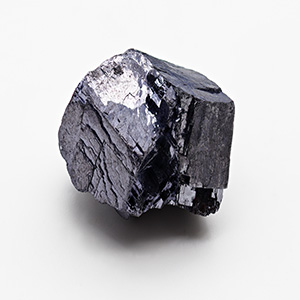Is Lead Magnetic? A Deep Dive into Lead’s Properties

Listen to this Article
Natural mineral form of lead sulfide
Before we discuss the specifics of lead’s magnetic properties, it is essential to understand the fundamentals of magnetism. In our world, electrons are just one of the many particles that make up everything, including magnets. A magnetic field is created when electrons align in the same direction, harnessing their negative charge. In most cases, a magnet does not need to touch an object to interact. We see examples of magnetism in our everyday lives, some of the most prevalent ones being fridge magnets, computer magnets, and MRI machines.
Contrary to popular belief, lead is not inherently magnetic since it is a diamagnetic material. Being diamagnetic means it has paired electrons that provide no magnetic moment. Just like gold, lead is also considered a metal, but because of its many properties, including being diamagnetic, it does not have those magnetic capabilities. Other diamagnetic elements that are also often mistaken for being magnetic include bismuth, silver, and copper. Understanding the distinctions between diamagnetic and magnetic materials is crucial, especially in fields like electromagnetism.
Uses for Lead
Although lead may not be helpful when demonstrating magnetic capabilities, it can be used in a wide variety of products, such as battery manufacturing and radiation shielding. Lead is still widely used, but its toxicity has prompted bans in specific applications, such as new plumbing. Many regulations and initiatives are in place to reduce lead exposure and promote safer alternatives. These alternatives can include the development of nontoxic substitutes for lead-based products and the implementation of rigorous standards for lead content in consumer goods.
